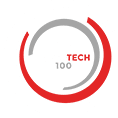Cyberattacks Target Families of Newfound Wealth

According to the Wall Street Journal, the “greatest wealth transfer in modern history has begun.” Between now and 2042, it is estimated that Baby Boomers and GenX will transfer over $70 trillion in savings, of which approximately 86% will go to heirs (Cerulli Associates).
In addition, despite current inflationary pressures and residual negative economic impact from Covid-19, U.S. household wealth has jumped to a record $136.9 trillion, according to a 2021 Federal Reserve Study.
In 2022, the Global Wealth Report from the Credit Suisse Research Institute revealed a 24% increase in the number of ultra-high-net-worth individuals. The total number of millionaires in the U.S had reached almost 22 million.
Unfortunately, newfound wealth doesn’t come without significant personal cybersecurity and digital privacy risks.
You cannot hide your wealth from cybercriminals
Over 25% of ultra-high-net-worth families, family offices and family businesses — those with an average wealth of $1.1bn (R17.5bn) — have been targeted in a cyberattack, according to a Campden Research study.
This is, in part, because it is not difficult for a cybercriminal to know who has just come into wealth.
According to an article in the Financial Times, “cyber criminals are trawling through wealth managers’ websites as well as social media networks to target the super-rich and trick them into parting with hundreds of millions.”
In addition, online data brokers compose lists of individuals who have recently sold small and mid-sized businesses. Anyone, including cybercriminals, can purchase these lists legally. Compromise can also result from cyberattack.
Editorial profiles, private information on the dark web, philanthropic activity, and political donations are also common indicators of wealth.
Protecting your wealth, family, and assets
A study by Accenture found that 77% of high-net-worth-individuals are more worried about being hacked than they are about their investments declining in value. Fears of cyberattack, fraud, and identity theft are even more overt for persons who have recently come into wealth.
Fortunately, newly minted high-net-worth individuals are able to reduce risk by taking the following actions:
- Online data broker removal – Personal information is readily available on hundreds, if not thousands, of data broker websites. Cybercriminals can purchase these records, or breach these sites, to collect the information they need to launch a cyberattack. Fortunately, anyone can opt-out of any data broker with a formal request to have your information deleted. Although a tedious task, you can start with this list of data brokers. A previous BlackCloak blog explains how information on data broker websites can be used against you.
- Create a private trust – In addition to the flexibility and tax benefits, placing your assets in a private trust can add an additional layer of security and privacy over both your finances and lucrative assets. For example, revocable living trusts can be formed under a generic name, helping you protect the confidentiality of your identity, finances, and assets from those who seek to compromise them.
- Prioritize email security – It cannot be stressed enough — keep your email secure. Should hackers gain unauthorized access, they can discover private accounts, engage in identity theft, and launch social engineering attacks. A Verizon report states that over 90% of cyberattacks occur via email. Aside from setting the most stringent security controls that your email client allows, make sure you are using a strong and unique password, enabling two-factor authentication (2FA), and if available, utilizing email encryption add-ons.
- Don’t forget device security – Installing consumer-grade anti-virus software on all desktop and mobile is a good start, but will only protect your devices about 50% of the time. Hackers and cybercriminals are always working on getting around current software security settings, and antivirus is no exception. Look for consumer solutions that offer some of the benefits inherent to endpoint detection and response (EDR) solutions to detect and respond to malicious activity.
- Install Digital Home Security – The average home now has 50 connected devices, with each of them being a vector for cyberattack. That’s why home networks are at heightened risk of brute force and man-in-middle attacks; communications eavesdropping and hijacking, DDoS and malicious code injection. To reduce risk, harden your ISP security settings and deploy network intrusion prevention technology. This will ensure the validity of online traffic flowing in and out of your home.
- Protect Your Family – For the wealthy, the head of household is not the only target. Today, attackers will prioritize the path of least resistance. They will infiltrate accounts that belong to your children or spouse because they are often less protected and less cyber-aware. Attackers can then move laterally into the digital infrastructure of those with the access they seek. Even if family members do not live in the same household, you must ensure that all of the cybersecurity and privacy protections are afforded to them.
Digital protection for high-net-worth individuals and families
The digital landscape is fraught with danger for those who have recently come into wealth or status. You must take digital privacy and cybersecurity seriously to avoid becoming a statistic. However, it can be difficult to keep up with all the precautions needed to keep hackers and cybercriminals at bay.
BlackCloak specializes in cybersecurity and digital privacy protection for high-profile and high-net-worth individuals and families. Our digital executive protection solution combines 24/7 threat monitoring, incident response, and personalized client support. It prevents, detects, and responds to targeted cyberattacks and fraud.
Learn more about BlackCloak for individuals and families and download 5 Reasons Successful People Like You Choose BlackCloak.








